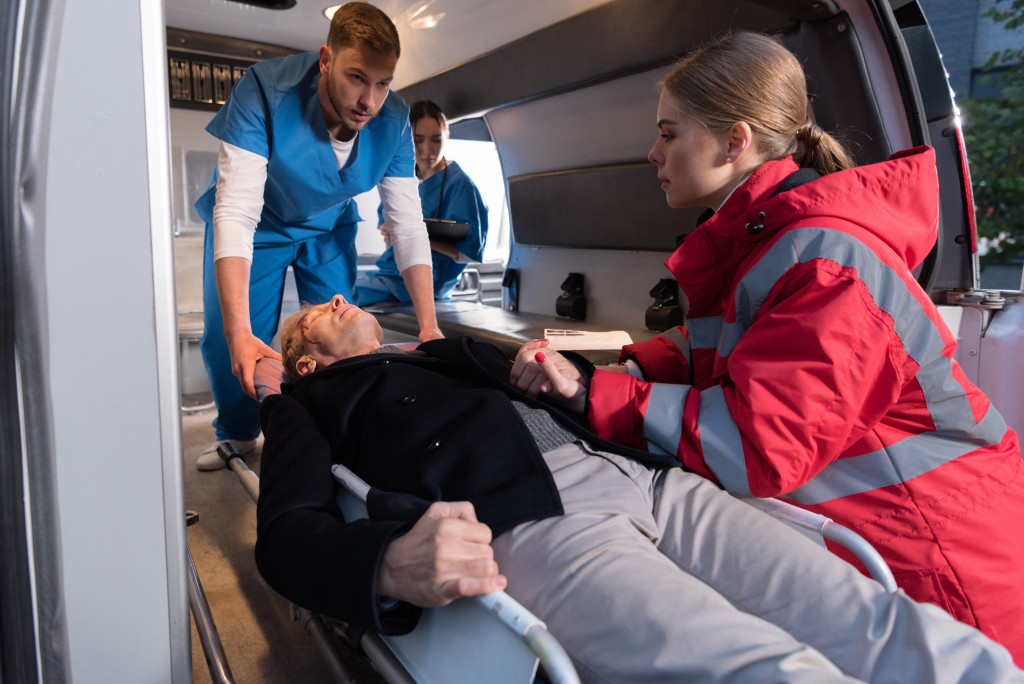Disclaimer: This website provides health information for educational purposes only and is not a substitute for professional medical advice, diagnosis, or treatment. Always seek the guidance of a qualified healthcare provider with any questions you may have.
- Emergency Medical Technicians (EMTs) provide pre-hospital care and require certification, but no college degree is necessary.
- Certified Nursing Assistants (CNAs) offer basic patient care and can be trained in as little as four weeks with no college degree required.
- Medical assistants can perform clinical tasks, such as taking vitals, and administrative tasks, such as filing paperwork.
- Pharmacy technicians help customers with medication orders and refill in retail pharmacies without needing a college degree.
Are you interested in a career in medicine but don’t have the time or money to pursue a college degree? Believe it or not, many medical careers do not require a college degree. This blog post will explore some of these opportunities and discuss why they may be attractive alternatives for those interested in a healthcare career who do not want to attend college.
Emergency Medical Technician
An emergency medical technician (EMT) is an entry-level, frontline medical professional who provides pre-hospital care to people who are injured or in need of immediate medical care. EMTs respond to emergency calls and provide basic treatments such as CPR and wound dressing. This job does require certification, but no college degree is necessary. Here’s how to become a certified EMT:
Complete a Training Program
EMT training programs can be found at both community colleges and private schools. These programs typically last about six months and include classroom training and hands-on experience in the field. It will teach you the skills needed to be an effective EMT and help you prepare for the certification exam.
Pass the Certification Exam
After completing your training program, you must pass a certification exam in order to become an EMT. The National Registry of Emergency Medical Technicians (NREMT) administers these exams, and they must be passed in order to receive official certification as an EMT.
Maintain Certification
After becoming an EMT, you must maintain your certification by completing continuing education courses and retaking the certification exam every two years. This ensures that you stay up-to-date with the latest medical practices and technologies. The NREMT offers several resources to help EMTs maintain their certification.
Certified Nursing Assistants (CNAs)

Certified nursing assistants (CNAs) provide basic care for patients under the direct supervision of nurses or doctors. CNAs are responsible for bathing and feeding patients, helping them move around the facility, changing bedpans, monitoring vital signs, and more. To become a CNA, you must complete an approved training program from an accredited institution and pass an exam administered by your state board of nursing or health department.
Becoming a CNA is a great way to get your foot in the door of the medical field and can often be done in as little as four weeks. No college degree is required, and it can be an excellent entry point into other healthcare careers.
Medical Assistant
One of the most popular non-college medical jobs is a medical assistant. Medical assistants can perform clinical tasks such as drawing blood, taking patient vital signs, and scheduling appointments. They can also perform administrative tasks such as filing paperwork and answering phones. This job requires on-the-job training, but no college degree is necessary. However, there are necessary specific skills, such as:
Organizational Skills
As mentioned, you will be in charge of administrative tasks such as filing paperwork and scheduling appointments. Therefore, having strong organizational skills is essential for this position.
Good Interpersonal Skills
Medical assistants are often the first point of contact between a patient and a healthcare provider, so they must have excellent interpersonal skills to ensure that patients feel comfortable and well cared for.
Pharmacy Technician
Another popular medical career option is that of a pharmacy technician. Pharmacy technicians work in retail pharmacies and assist customers with their medication orders and refills. They also help pharmacists prepare medications for customers and ensure accuracy when filling prescriptions. This job does require formal training and certification, but no college degree is needed to get started.
Veterinary Technician

Veterinary technicians are essential members of veterinary teams, providing medical care to animals under the supervision of a veterinarian. Veterinary technicians assist with clinical exams, administer medications and vaccines, draw blood, take x-rays, and perform other laboratory tests. To become a certified veterinary technician, you must complete an accredited training program and pass a certification exam.
No matter which of these non-college medical careers you choose, there are plenty of ways to get your foot in the door and start a successful career in medicine without having to go to college. You’ll gain valuable experience that can be used if you ever decide to pursue a degree later on while still taking advantage of the opportunities available to you now. With hard work and dedication, you could be enjoying your new career as a medical professional in no time.




